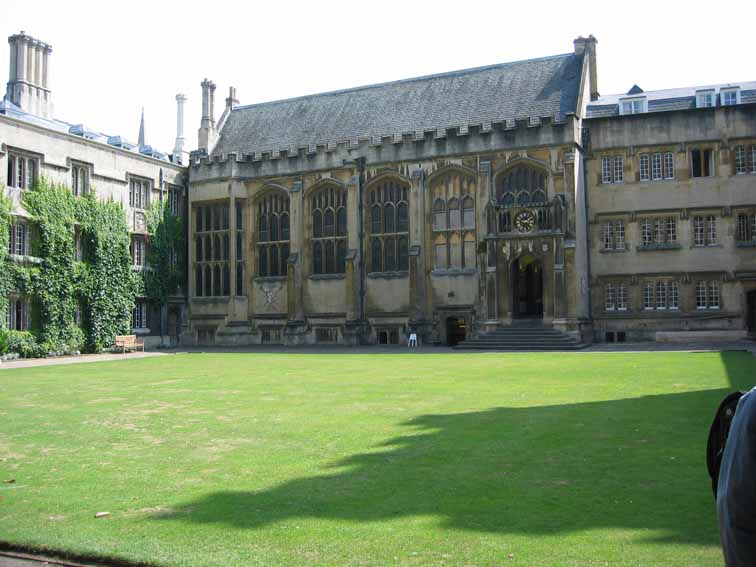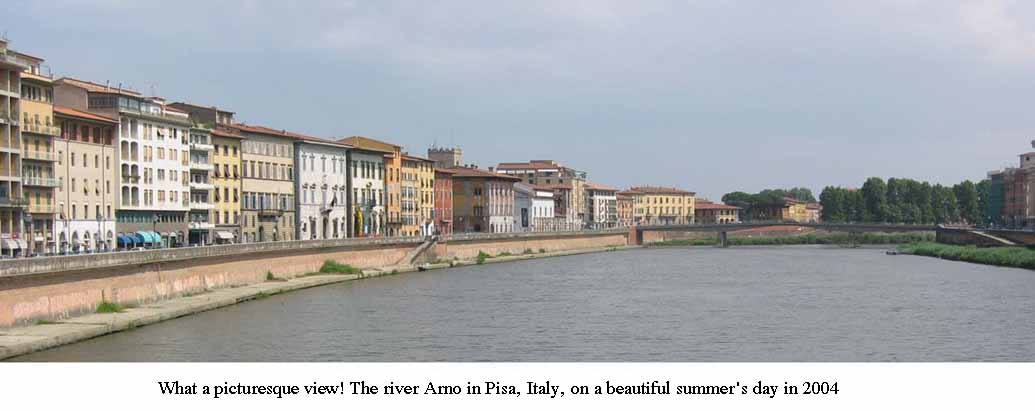Preface
Preface
In 2006 I took part in a three-week summer programme in creative writing at Exeter College in Oxford, England, run by the Department for Continuing Education of the University of Oxford.

Exeter College: Quadrangle and Dining Hall
The reason for my decision to apply for a vacancy on this programme lay founded in the fact that “creative writing” was in everybody’s mouth, on every freshman’s course in the USA, and last but not least on my syllabus for grammar school students covering English as a core subject here in Germany, juniors as well as seniors. By the time I ‘chose to choose’, “creative writing” had assumed a magic spell. One couldn’t escape hearing or reading about it. “Creative writing” had turned into a catch phrase emanating an irresistible lure to it. So I just had to taste and find out about it: as to whether it was as promising and helpful in improving one’s style and creativity in so many ways or whether it would just prove a make-believe myth, a fake of hopes and expectations a lot of people had already fallen victim to. Before I set out on my trip to Oxford I wondered if I would come back “enlightened”, endowed with new skills of reading and writing, and a widened horizon as a ‘creative writer’.
The reader of my little contributions to the programme may judge for themselves whether they deserve to be reckoned among pieces of ‘creative writing’.
In principle work on the programme was organized on the basis of four workshops, two of which we had to take part in. The workshops consisted of two sessions a week, each lasting a good two hours, during which – as a rule – several papers from (often volunteering) members of the group were presented and discussed in detail. Themes like ‘confessions’, ‘dreams’, ‘epiphanies’, to enumerate just a few, were thus dealt with in depth, widened and rounded out so as to lead us over to another theme in close vicinity to the one we were focussed on. At the end of each class new assignments were set which we had to prepare and/or work out (in a written form of our choice) for the next session.
The compilation of ‘creative writings’ published here originates from these three workshops:
a) ‘Writing Lives’, in whose charge Dr. Kelly Grovier was, Lecturer in English and Creative
Writing at the University of Wales, Aberystwyth, as it said on my list
b) ‘The Art of Writing’, run by Prof. Jem Poster, Professor and Director of Creative Writing
at the University of Wales, Aberystwyth, again according to the info on my list
c) ‘Reading for Writers’, taught by Prof. Sandie Byrne, Professor of English at the
University of Lincoln; formerly Fellow and Tutor in English at Balliol College in Oxford;
Programme Director of the complete course – as the info material says
Some kind of difficulty I got stuck in resulted from the circumstance that by the end of week two I resolved to opt out from Dr. Kelly’s workshop (for purely personal reasons, incidentally) and cross over to Prof. Byrne’s work group. This change left me in a (self-imposed) predicament which to solve wasn’t quite easy for me. Whereas for Prof. Poster’s workshop I had sufficient time to put together a portfolio of papers for evaluation, I was confronted with a real challenge in Prof. Byrne’s case. While those of her ‘full-time students’ who wanted to submit some work for evaluation had been given a fortnight’s time to do so, I had to fulfil this job within less than five days. At 10 p.m. on the last Saturday of our programme I found Prof. Byrne’s paper with the assignment on it in my pigeonhole. After casting a first look at it I got a shock. The task I faced consisted of a three-divided assignment referring to an extract of one of Jane Austen’s novel (Emma or Pride and Prejudice), which we had to appreciate and ‘reproduce’ in a piece of writing of our own. What a formidable task to accomplish! Would I meet the high demand attached to such a paper (within such a short span of time). at least to a satisfactory degree? The deadline for handing in the paper was Thursday, late afternoon, a day before our official farewell dinner, a highly dressed occasion. It was Jane Austen who after a second and closer inspection of the paper convinced me that I could ‘make it’. Pride and Prejudice is a literary piece of art that has been to my liking ever since I read it for the first time. There is a line, an affinity between ‘her’ and my humble self, which makes it easier for me to step into her shoes and sense what life in her days must have been like for her. Therefore what looked impossible to do at first sight seemed feasible upon a second thought. One incident that significantly revealed the extreme pressure of time under which I had to work was the instant when a fellow-student of mine asked me on that Thursday afternoon whether I didn’t have a tutorial with Prof. Poster, which I – quite puzzled – denied. Later that day it dawned upon me that I had skipped the arranged tutorial with Prof. Poster. I had done it unawares, due to the fact that I was so wrapped up in my work for Prof. Byrne, so absorbed with giving my paper a finishing touch before submitting it that I had completely forgotten about my meeting with Prof. Poster. (I hope he hasn’t taken it as an insult, but has forgiven me. I know I owe him so much in terms of incentives for the way I should write.)
The writings published here are just a selection of all my attempts at writing ingeniously from the perspective of a ‘wannabe’ creative mind.

